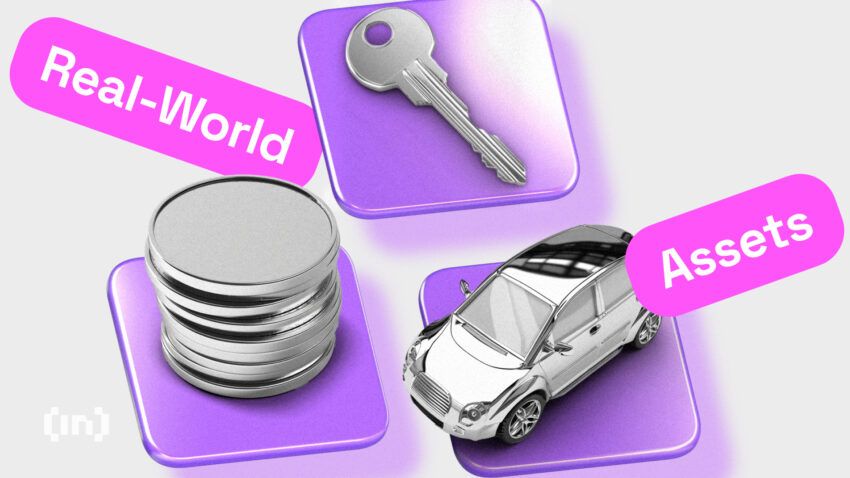On Wednesday, the US Financial Services House Committee held a hearing titled “Next Generation Infrastructure: How Tokenization of Real-World Assets Will Facilitate Efficient Markets.”
The hearing aimed to assess the need for more regulations to support the tokenization of real-world assets (RWA) and derivative products.
Diverse Opinions Emerge on Blockchain Use in Traditional Finance
Notable individuals from a range of professions participated during the hearing. Carlos Domingo, the Co-founder and CEO of Securitize, and Robert Morgan, the CEO of the USDF Consortium, represented the real-world assets tokenization industry.
From the financial markets, Lilya Tessler, a Partner at Sidley Austin LLP, and Nadine Chakar, the Global Head of Digital Assets at the Depository Trust and Clearing Corporation, also contributed. Additionally, the hearing featured an academic perspective from Prof. Hilary Allen, a Law Professor at American University Washington College of Law.
During the session, witnesses and lawmakers shared varied perspectives on tokenization. Chairman French Hill highlighted tokenization’s potential to bring traditional finance onto the blockchain, promising enhanced efficiency and reduced costs.
Read more: RWA Tokenization: A Look at Security and Trust
“Tokenization can leverage the efficiency and transparency of blockchains to help modernize US markets. […] With the help of blockchain, tokenization can automate some of these critical processes within financial transactions, bringing along streamlined settlement and lower costs,” he said.
Tessler emphasized the widespread digital representation of assets, noting that blockchain could enhance these processes by offering programmability and liquidity. Morgan discussed the evolution of ledger technologies in banking. He suggested that distributed ledger technology (DLT) could break down silos in the financial system.
“Today, financial infrastructure consists of a series of siloed systems. Tokenization has a unique ability to break down these silos, facilitating real-time collaboration among financial institutions,” Morgan explained.
Chakar echoed the sentiment. She stressed the importance of building interoperable infrastructures with built-in compliance. Additionally, Domingo showcased Securitize’s role in modernizing private capital markets through tokenization, underlining the technology’s efficiency.
Ongoing Debate: Can Tokenization Transform Traditional Finance?
However, not all experts and lawmakers were optimistic about real-world assets tokenization. Congressman Brad Sherman and Professor Hilary Allen voiced concerns over the implications of tokenization. Particularly, they are worried about regulatory oversight and financial stability.
Sherman questioned the potential for tokenization to bypass existing regulatory frameworks. Meanwhile, Allen criticized public blockchains’ inefficiencies and operational fragilities.
“Public permissionless blockchains suffer from inescapable inefficiencies and operational fragilities, making them unsuitable for real-world financial assets. […] Tokenization should not be used to integrate real-world financial services with the crypto universe,” Allen opined.
The experts’ contrasting views during the hearing also sparked debates among the crypto community. Borys Pikalov, Co-Founder and Managing Partner at Stobox, counterargumented Allen’s comment.
“Certain blockchains can already process more transactions per second than Visa, which is especially impressive since securities transactions are less frequent than payment transactions. My strong view is that we should aim to keep finance on permissionless chains as much as possible. Otherwise, the benefits of transparency, auditability, and interoperability are largely sacrificed, keeping the industry stuck in the old ways,” Pikalov explained.
Despite the differing opinions, the hearing shows the ongoing debate about the future of blockchain technology in traditional finance. Indeed, the potential regulatory clarity from such discussions could pave the way for broader adoption of tokenization. Particularly in high-potential industries like real estate and securities.
As the debate continues, it’s clear that the finance industry is on the brink of a transformation. Industry leaders are exploring the innovative applications of real-world asset tokenization.
Read more: What is Tokenization on Blockchain?
Notably, some banking giants like Citi are exploring tokenization’s potential. In a report, Tony McLaughlin, one of Citi’s executives, explained that tokenization could revolutionize digital money by surpassing traditional account-based systems and creating networks of regulated liabilities. This innovation promises a new generation of digital money that is regulated, redeemable at par value, and legally owned by the holder.
Disclaimer
In adherence to the Trust Project guidelines, BeInCrypto is committed to unbiased, transparent reporting. This news article aims to provide accurate, timely information. However, readers are advised to verify facts independently and consult with a professional before making any decisions based on this content. Please note that our Terms and Conditions, Privacy Policy, and Disclaimers have been updated.

